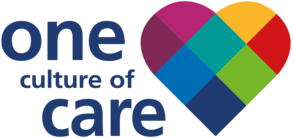If you think the Elland bypass can get clogged at times then take a look at this road in Liberia. (bottom right and map attached)
It's the only route to the local maternity hospital and is and where our paediatrician Alistair Morris - back in top photo left - is helping to save new born babies' lives through education and support.
He set up a charity - Niche International - last year to reduce neonatal mortality in low income countries through training local healthcare workers and then training them to teach the course.
He has just returned from Liberia where we have now trained 75 in newborn care as well as eight instructors
www.nicheinternational.org.uk and here he answers more about his wonderful work.
Why Liberia?
Liberia is the 9th poorest country in the world. It was ravaged by civil war 15 years ago and then further hit by Ebola in 2014-2016 which has decimated the doctor and nurse workforce. It has a very high neonatal mortality rate of 27 per 1000 (compared with 3 per 1000) however is likely higher than that as only 4% births are registered. WHO and UN agree that with simple measures - neonatal resuscitation, hand washing, breastfeeding, Kangaroo mother care and recognition and treatment of the sick baby then the newborn mortality rate can be halved. This is what we teach on the course. We then select those with instructor potential and train them to be instructors and provide them with the materials to teach the course.
What is the biggest danger for newborns?
The biggest danger for newborns is infection, prematurity and birth asphyxia. Nearly a third of all babies who are admitted to the neonatal units die.
How easy is it to get to hospital?
Hospitals are often more than a day's walk for mothers. In the rainy season roads are impassable and so hospitals cannot be accessed. We therefore train community healthworkers too. Half of our group flew into the east of the country as the roads were not open to teach in a local hospital.
What are conditions like out there?
The conditions are hot and humid - mostly in the high 20’s or 30’s. There is no real good quality medical care and so the only option should one of us become ill is medical evacuation to a neighbouring country. We are insured and covered for this. There are mosquitos but not too bad. There are the usual animals - monkeys, chimps, crocodiles etc but we do not see on a regular basis. The greatest threats are the driving and risk of theft and attack, although we haven’t felt at risk being sensible. We were hosted by the WHO in the UN compound with full security
Tell us about the charity.
I currently am the lead Trustee for this charity which I set this charity up 2 years ago with some colleagues from around the country with similar interests in teaching overseas. At that time, we were working on a project in Cameroon and have now completed that work. Our charity NICHE International (Newborn, Infant, Child Health Education) is a small table top charity with the sole purpose of educating health professionals.
What did you achieve on this trip?
On this trip we trained 46 Healthcare Professionals (nurses, midwives and doctors) as well as establishing a faculty of 8 instructors. In total we have trained 75 healthcare professionals over the 2 trips I have done (one in Nov 2018). This means that in the average working life of our trained candidates there will be a skilled professional at over 1.5m births - and we intend to return in 2020 at least once so this number will increase.
Donations are welcome from our website: www.nicheinternational.org.uk


